
Weiss and Provost awards honor outstanding faculty
Mark Sarvary, Ph.D. ’06, senior lecturer of neurobiology and behavior in the College of Agriculture and Life Sciences receives The Stephen H. Weiss Teaching Award.
 Department Homepage
Department Homepage
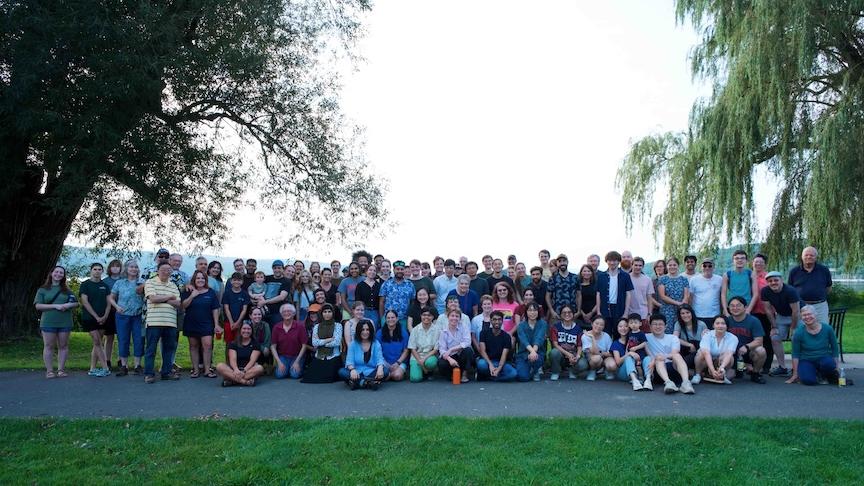
The broad mission of the Department of Neurobiology and Behavior (NBB) is to conduct teaching and research that promotes a better understanding of how the brain gives rise to behavior and why behavior evolves across species. The broad range of research areas represented in NBB provides internationally recognized expertise across all major fields of neuroscience and modern organismal & behavioral biology. Established in 1964, we are one of the first programs in the United States to bring together neuroscientists and evolutionary biologists within a single academic unit. This pioneering initiative played a foundational role in establishing the emerging fields of neuroethology, which integrates neurobiology with the study of animal behavior in natural settings, and chemical ecology, which explores chemically mediated interactions between organisms.
The research areas at NBB range from the molecular mechanisms that regulate neuronal excitability to neural circuits underlying perception, learning, memory, decision-making, cognition, and motor control, and extend to studies of the behavioral ecology and evolution of whole organisms in their natural environments. Through our research and teaching, we seek to integrate mechanistic and evolutionary perspectives, combining molecular, cellular, systems, and computational approaches with laboratory and field studies to foster connections between the historically separate disciplines of neurobiology and behavior.
Our program is internationally recognized for pioneering research on the evolution of animal social behavior, chemical ecology, sensory detection, and the neural coding of communication signals. Building on these strengths, NBB is expanding its interdisciplinary focus to include behavioral genetics and functional genomics, the evolution of behavioral modularity, sensory ecology, collective behavior, quantitative studies of behavioral adaptation in natural environments, the neural mechanisms of learning, memory, navigation, and motor control, as well as brain–body communication, computational neuroscience, and artificial intelligence (AI).
Through these efforts, we aim to sustain and strengthen NBB’s tradition of innovation, ensuring continued growth and leadership in the field of neurobiology and behavior. By fostering interdisciplinary collaborations, advancing cutting-edge research, and training the next generation of scientists, we are committed to shaping the future of these fields for decades to come.
Alumni and Faculty have teamed up to establish an endowment that will have a lasting impact on graduate student research in Neurobiology and Behavior. This endowment generates funds devoted exclusively to supporting our in-house program of Research Grants for graduate students, and we need your help to grow it.

Mark Sarvary, Ph.D. ’06, senior lecturer of neurobiology and behavior in the College of Agriculture and Life Sciences receives The Stephen H. Weiss Teaching Award.
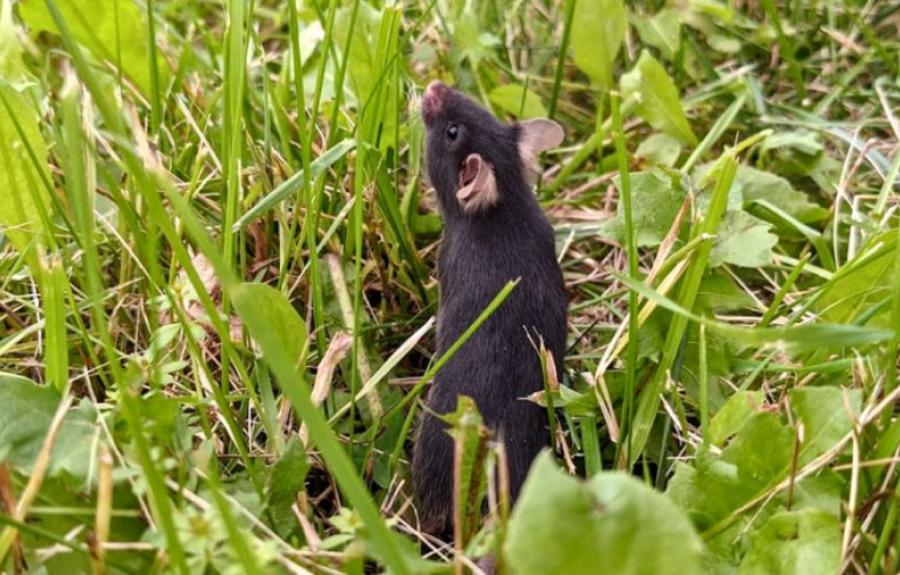
Cornell Researchers are studying mice in an outside enclosure where they are allowed to roam freely. As quoted by Matthew Zipple, postdoctoral researcher in the neurobiology and behavior department, "We put them in the field for a week, and they returned to their original levels of anxiety behavior"

When postdoctoral researcher Matthew Zipple releases lab mice into a large, enclosed field just off Cornell’s campus, something remarkable happens.
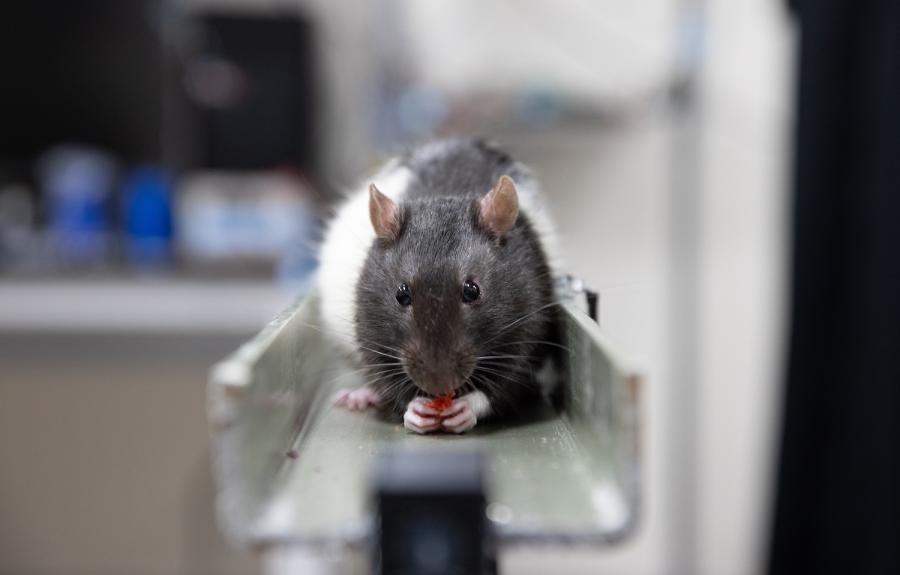
Antonio Fernandez-Ruiz, assistant professor and Nancy and Peter Meinig Family Investigator in the Life Sciences of neurobiology and behavior and Azahara Oliva, assistant professor of neurobiology and behavior found a pattern of ripples in Brain activty during sleep that affects memories. Azahara Oliva said, “This study advance our understanding of memory processing in the brain". Antonio Fernandez-Ruiz is quoted as saying, “Ripples are mediating the transfer of memory from the initial encoding in the hippocampus to long-term stable storage in the neocortex” Read the entire story in Neuroscience News.
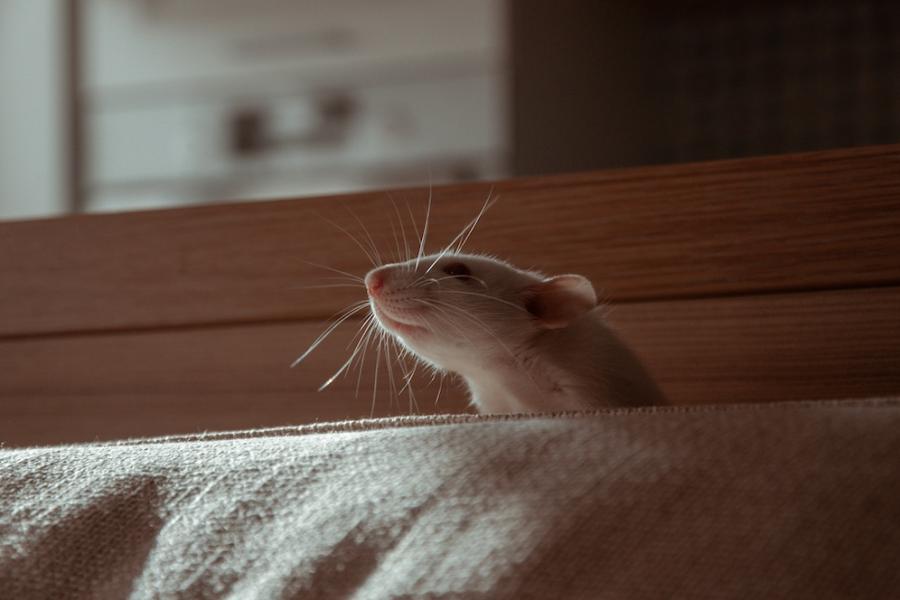
The mice could remember new experiences that would normally be forgotten – a finding with important implications for treating Alzheimer’s disease.

Howard Howland, Ph.D. ’68, a neurophysiologist who studied the eyes of humans and animals, died Oct. 26 in Ithaca. He was 92.
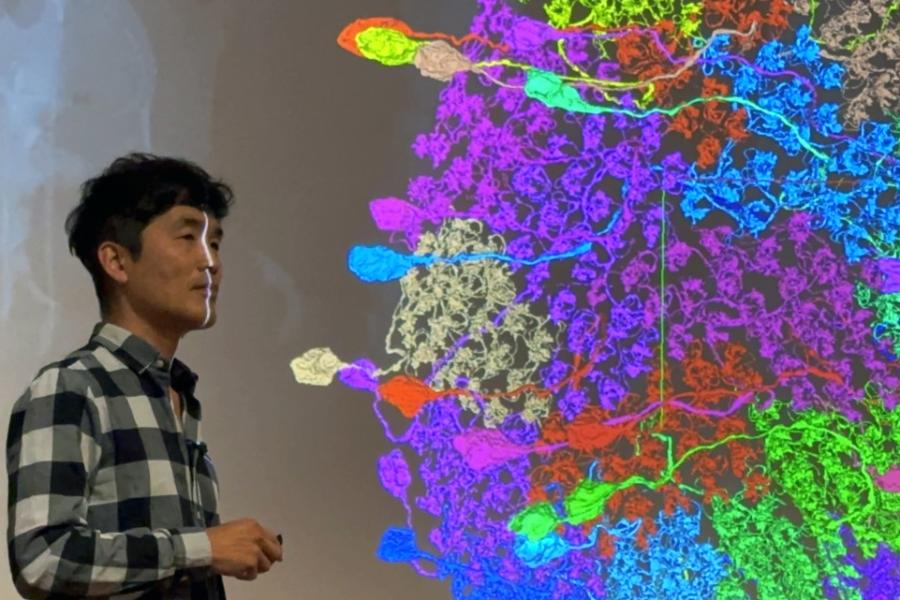
The event was an example of Cornell’s interdisciplinary commitment to advancing the frontiers of neurotechnology.

Cornell researchers and collaborators have developed a neural implant so small that it can rest on a grain of salt, yet it can wirelessly transmit brain activity data in a living animal for more than a year.